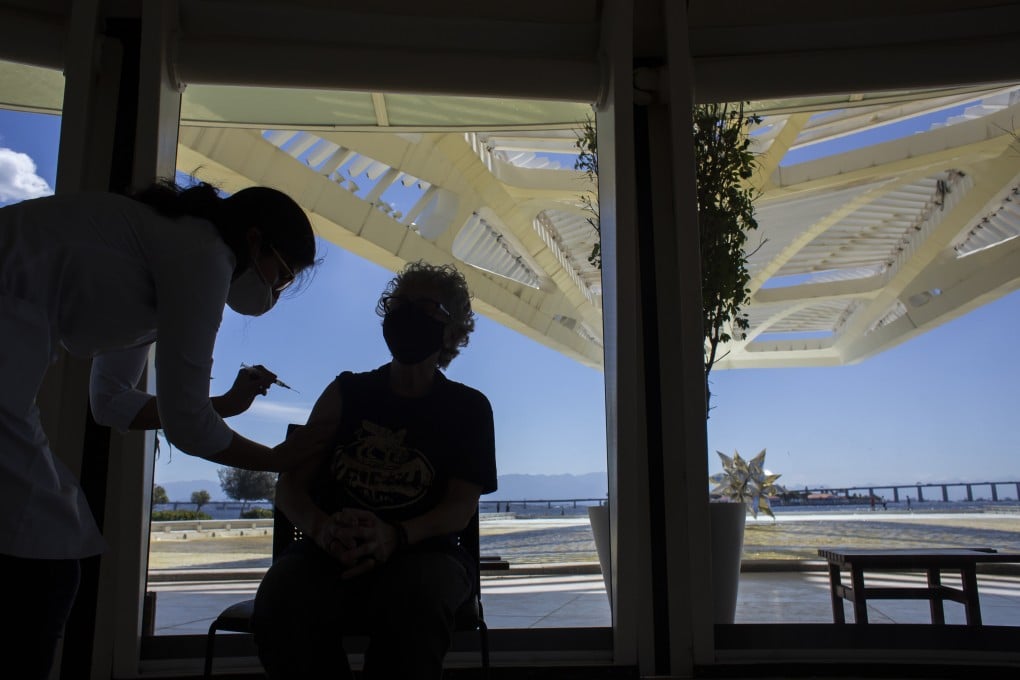Brazil’s P1 coronavirus variant mutating, may become more dangerous, say scientists
- Researchers fear the virus is creating another ‘escape mechanism’ to evade antibodies, which could make it more resistant to vaccines
- The changes appear to be similar to mutations seen in the even more aggressive South African variant

Brazil’s P1 coronavirus variant, behind a deadly Covid-19 surge in the Latin American country that has raised international alarm, is mutating in ways that could make it better able to evade antibodies, according to scientists studying the virus.
Research conducted by the public health institute Fiocruz into the variants circulating in Brazil found mutations in the spike region of the virus that is used to enter and infect cells.
Those changes, the scientists said, could make the virus more resistant to vaccines – which target the spike protein – with potentially grave implications for the severity of the outbreak in Latin America’s most populous nation.
“We believe it’s another escape mechanism the virus is creating to evade the response of antibodies,” said Felipe Naveca, one of the authors of the study and part of Fiocruz in the Amazon city of Manaus, where the P1 variant is believed to have originated.
Naveca said the changes appeared to be similar to the mutations seen in the even more aggressive South African variant, against which studies have shown some vaccines have substantially reduced efficacy.
“This is particularly worrying because the virus is continuing to accelerate in its evolution,” he added.
Studies have shown the P1 variant to be as much as 2.5 times more contagious than the original coronavirus and more resistant to antibodies.
